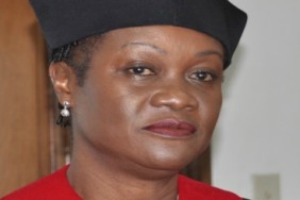Essential Shift: Liberian Governance from Hierarchy to Idea-Driven Leadership

By: Austin S Fallah – A True Son of the Planet Soil:
In the undulating landscape of modern governance, there is an ever-increasing call to steer away from traditional hierarchies towards a more dynamic, idea-driven approach.
This transition is especially pertinent to Liberia, a nation with a chequered past and a future brimming with potential. It is not a mere option, but it is imperative.
This powwow pivots on the conviction that Liberian government agencies and the leadership of these agencies must champion a revolution inspired by ideas, not hierarchy.
Through a culture of inclusive weekly meetings, idea generation from staff, stringent monitoring of activities, and hands-on leadership, Liberia can usher in an era of minimized corruption, effective resource management, and enhanced employee productivity.
At the heart of this call for change lies the notion that esprit de corps among government employees could become the lifeblood of progressive governance.
When staff and employees are engaged in weekly think-tank sessions, two pivotal shifts occur:
a). Collective intelligence emerges, mitigating the risk of tunnel-vision policies that often trail hierarchical decision-making.
b). A sense of ownership and responsibility is cultivated, significantly lowering the tendencies toward corruption and abuse of power.
These values are instrumental for the maturation of Liberia’s governmental institutions, as they breed transparency and accountability.
Moreover, involving staff in the craft of policy-making addresses the cancerous problem of corruption that often plagues hierarchical systems.
When the workforce of government agencies feels seen and heard, their stake in maintaining the integrity of operations magnifies.
They become additional eyes and, shall we, as public policy experts and intellectuals say, guardians against the malpractices threatening to devour the public trust.
The ideas emerging from these synergistic meetings are precisely the intelligence that can detect and dismantle corruption before it festers into societal wounds.
However, ideas alone are sterile without the proper hands to mold them into action.
Leaders must lead from the front, symbolizing a transition from chair-on to hands-on supervision/management.
Ministers and head honchos should become exemplars, stepping out from the comfort of their offices to the grit of the field where the actual workforce is present.
By inhabiting the areas under their stewardship, they maintain a pulse on the actualities and deter practices such as payroll padding.
In their visible presence, unnecessary positions are questioned, and complacency finds its nemesis.
When departmental leaders are active participants rather than distant figureheads, the unproductive employees who resist change and accountability often find themselves out of step with the new regime of idea-meritocracy and are more likely to leave, raising productivity levels overall.
Such hands-on exploration redefines leadership from a static to a dynamic state, one where ministers and agency heads are not just regulators but innovators.
Accountability becomes palpable as actions are tied directly to the individuals in charge.
This creates a new brand of public officials and not autocrats but catalyzers of collective ingenuity.
Yet, Liberia stands at a crucial juncture, not only to enact such policy shifts within the current bureaucratic epoch but to lay the foundations for a living legacy that outlives its creators.
This means creating systems that inherently resist retrogression regardless of who is at the helm.
As leaders sculpt the landscape of public service, they must adopt the vision that their initiatives and frameworks are for the continuity of good governance.
It is imperative to reap immediate rewards and seed the fertile grounds for a future Liberia that thrives on institutional longevity and resilience.
Looking back to imbibe lessons from history is essential, but moving forward, we must carry forward only that which serves the nation’s progress.
Discarding archaic practices rooted in hierarchy nurtures a space for innovation and efficiency and one more aligned with the globally interwoven digital era of the 21st century, a century that, with each passing moment, edges closer to its twilight.
The ideas fostered today will be the pillars of tomorrow’s Liberia, supporting a time when the current leaders will have stepped down, leaving only their policies and the culture they breathed into the nation’s fabric as their enduring mark.
In closing, let me say that it is undeniable that hierarchy has its place in any organized system.
There is a need for structure for a chain of command that ensures order.
However, in the burgeoning narrative of Liberia’s future, the leadership at the top of this chain must be recognized not only by their titles( I/was a minister, managing director, director of this or that, etc.) but also by their relentless pursuit of cultivating ideas.
They must be champions weaving together the insightful threads offered by their teams into a resilient tapestry reflective of collective purpose.
For Liberia to walk the path of true progress, every government agency must evolve beyond the static rigidity of hierarchy and, instead, thrive on the vibrant potency of ideas.
It is embracing this shift from the top down that Liberian leadership can pioneer a model of governance that is perpetually self-improving, fundamentally just, and unwaveringly aligned with the heartbeat of its people.
The leadership’s legacy will then be measured not by the duration of their tenure but by the enduring integrity and innovative spirit they instill in the fabric of Liberia’s future.
Such is the promise of an idea-driven Liberia, one that applies the most profound wisdom of its people toward the steward of its destiny.



















